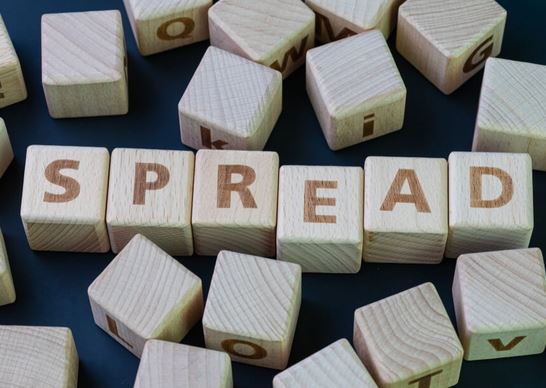In foreign exchange, the spread is the gap between a currency pair’s bid price (to sell) and the asking price (to buy). There are two prices for each pair: the bid and the ask. At the asking price, you can buy the base currency. At the bid price, you can sell it.

How to calculate spread in Forex?
Look at the two largest numbers at the end of the price quote to determine the difference between the buy and sell prices.
When trading foreign currency or other assets through a contract for difference (CFD) trading account or a spread betting account, the entire spread is due at the time of the trade. This is like the commission paid when a CFD trade is opened and closed.
If you’re a buyer or a seller, you’ll get more out of a smaller selection.
What causes a change in spread value?
When estimating your trading costs, you should think about the spread. The spread is a number that can change and affects how profitable the trade is.
All ranges are based on how much a product is worth on the market right now. Market makers and traders may add a part of the spread as transaction costs to cover the time and work it takes to make a trade.
There are many reasons, such as:
- Liquidity. The market is said to be liquid when there are lots of deals. An asset ready to be turned into cash can be done quickly, while a static asset is harder to turn into cash. Spreads are usually smaller for goods traded a lot and bigger for those not traded as often.
- Volatility. The gap gets a lot bigger when there are significant and quick changes in market prices. Market managers can use doubt to widen their spreads, and traders can try to make money from the resulting changes.
- Price. When an item is cheap, its instability and liquidity go through the roof. This has caused the gap to get bigger. When prices go up, it’s the other way around.
Forex spread can change depending on how volatile the market is. For example, the spread of a currency pair can change based on news about how solid or weak a single currency is.
When the market is volatile, gaps can form between exchange pairs, or the pair can become less available. Both of these things make the spread bigger.
You should be ready for the chance of wider spreads. You can do this by keeping an eye on our Forex economic calendar.
If you keep up with the things that could make currency pairs less liquid, you can better predict if their volatility will increase and, in turn, if the gap will get bigger. It can be hard to guess how sudden news or economic data will affect things.

Bottom line
The difference between a currency pair’s bid and ask price is called the forex spread. The usual way to measure this change is in “pips.” Before you trade in foreign exchange, you should know what causes a gap to grow. Since many essential currency pairs are sold, there is less of a difference between them. But there is a bigger difference between more unusual pairs of currencies. Read our tips to learn more about the forex market and how to handle your money and risks.


